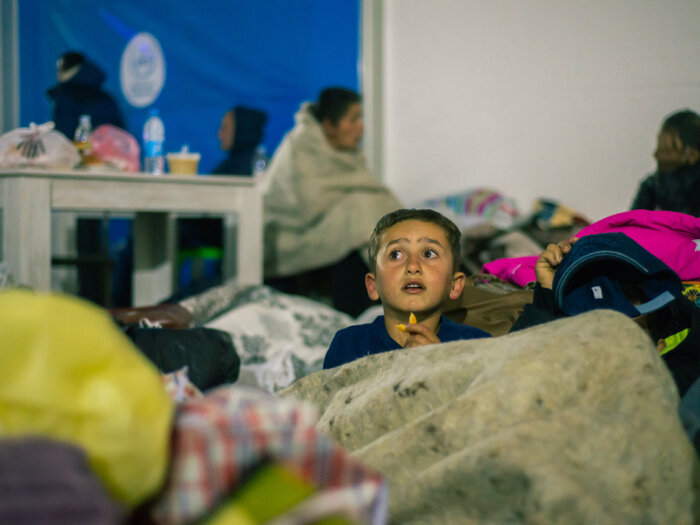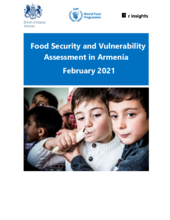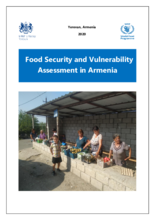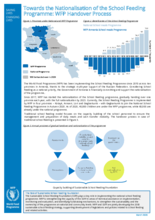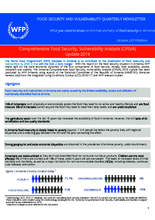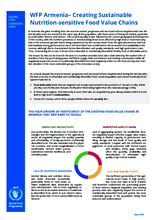Armenia
- 30%
- of people are food insecure
- 25%
- of people live in poverty
- 3 million
- population
Armenia has faced numerous challenges in recent years, including the COVID-19 pandemic and clashes along the Armenian-Azerbaijani line of contact. Hostilities in the Karabakh region of Azerbaijan resulted in over 100,000 people fleeing into Armenia in one week in September 2023.
The influx led the World Food Programme (WFP) to provide assistance, including shelter, food, and psychosocial support, to refugees and vulnerable communities.
WFP's efforts in Armenia go beyond immediate relief, focusing on resilient solutions to enhance food security and support local farmers, empower communities, and build government capacities. We prioritize food security with a resilient ’farm to fork’ approach.
One initiative is the Food Card, which provides cash for food at selected stores for vulnerable people. This activity will be handed over to the Government at a future point. The school meals programme in Armenia was nationalized in 2022. WFP will support the expansion of transformative school meals and continue strengthening links to rural development.
What the World Food Programme is doing in Armenia
-
Food systems
-
WFP Armenia increases the availability of, and access to, nutritious, locally produced food. This involves a ’farm to fork’ approach, which emphasizes local production, livelihood investment, water-irrigation improvements, and initiatives in climate-smart agriculture and solar energy. In partnership with the Centre of Humanitarian Demining, WFP facilitates land clearance for agricultural use.
-
Social protection
-
WFP supports social assistance activities that address food insecurity and malnutrition while integrating early action and shock-responsive approaches. An example is the Food Card, which allows people to buy food from selected supermarkets. Education in financial literacy and nutrition also forms part of the support.
-
Social behaviour change
-
WFP’s project design takes into account behaviour and decision-making, to ensure people’s ownership and engagement in activities. One activity involves children cooking healthy versions of their favourite food.
-
Climate change
-
WFP’s projects include climate-proofing of activities, for example by providing access to solar-energy technologies for small and medium-sized enterprises, community buildings and schools. WFP provides communities with drip-irrigation and rainwater-collection systems, and training on soil and water-management techniques, as well as composting.
-
Nationalization agenda
-
WFP Armenia seeks to nationalize all solutions in the design phase of activities, through a strong partnership with government ministries and other groups. We pilot food-security approaches and transfer them to communities, civil society or the government. WFP also supports the Government in engaging with other countries, including through South-South and Triangular Cooperation.
Armenia news releases
Go to pagePartners and donors
Find out more about the state of food security in Armenia
Visit the food security analysis pageOperations in Armenia
Contacts
Office
14 Petros Adamyan St, Yerevan 0010, Armenia
Armenia

